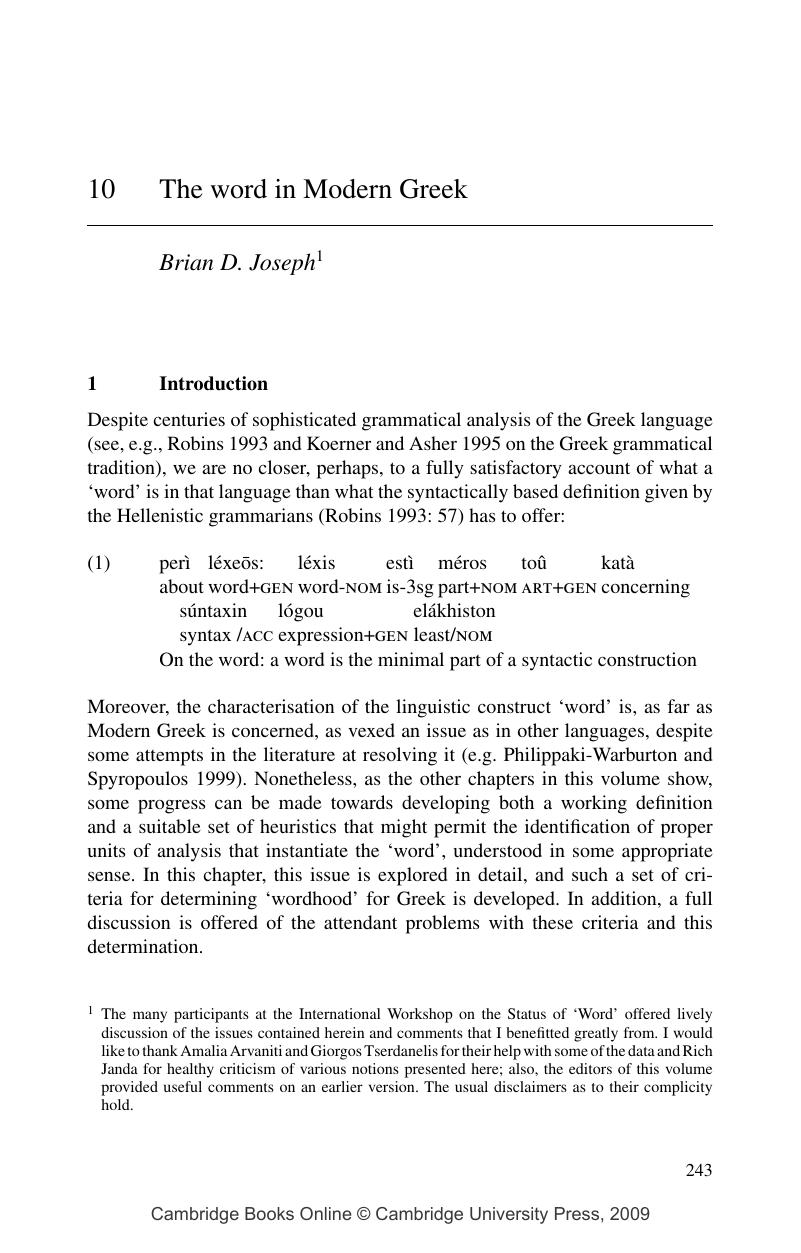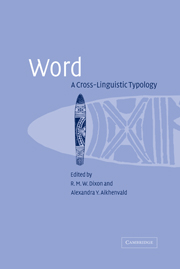Book contents
- Frontmatter
- Contents
- List of contributors
- Preface
- List of abbreviations
- 1 Word: a typological framework
- 2 Typological parameters for the study of clitics, with special reference to Tariana
- 3 The word in Cup'ik
- 4 The word in Eastern/Central Arrernte
- 5 The eclectic morphology of Jarawara, and the status of word
- 6 Towards a notion of ‘word’ in sign languages
- 7 Synchronic and diachronic perspective on ‘word’ in Siouan
- 8 What is a word in Dagbani?
- 9 The word in Georgian
- 10 The word in Modern Greek
- 11 What can we conclude?
- Index of authors
- Index of languages and language families
- Index of subjects
- References
10 - The word in Modern Greek
Published online by Cambridge University Press: 22 September 2009
- Frontmatter
- Contents
- List of contributors
- Preface
- List of abbreviations
- 1 Word: a typological framework
- 2 Typological parameters for the study of clitics, with special reference to Tariana
- 3 The word in Cup'ik
- 4 The word in Eastern/Central Arrernte
- 5 The eclectic morphology of Jarawara, and the status of word
- 6 Towards a notion of ‘word’ in sign languages
- 7 Synchronic and diachronic perspective on ‘word’ in Siouan
- 8 What is a word in Dagbani?
- 9 The word in Georgian
- 10 The word in Modern Greek
- 11 What can we conclude?
- Index of authors
- Index of languages and language families
- Index of subjects
- References
Summary

- Type
- Chapter
- Information
- WordA Cross-linguistic Typology, pp. 243 - 265Publisher: Cambridge University PressPrint publication year: 2003
References
- 2
- Cited by



